Laica Blog
Saving water: 5 small ways to protect the environment
Water is a precious resource but it is also finite.
The idea that water is not infinite and that it must be protected and preserved is still (unfortunately) widely underestimated. Each of us can contribute to preserving water through simple everyday actions.
In this article, we will explore five ways to save water and protect the environment.
1 - Reduce water consumption
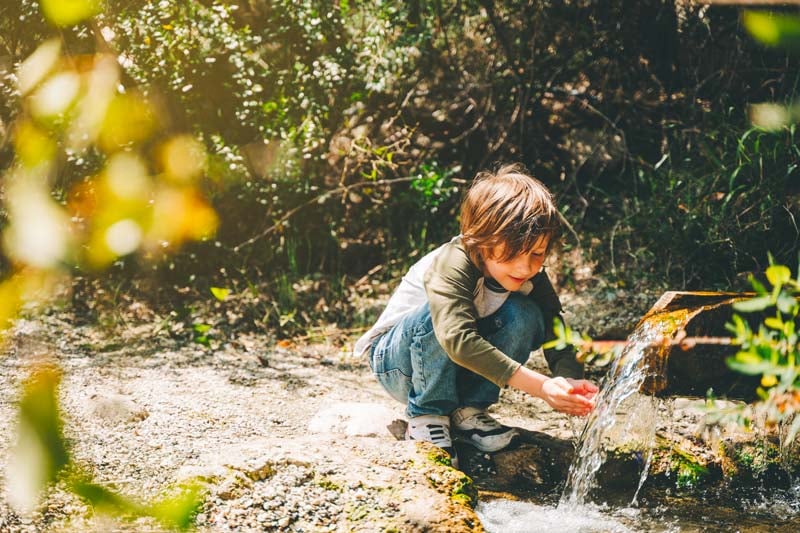
The small actions which we will look at in this paragraph may seem trivial but the reality is that they are still too often overlooked and played down. They are critically important.
Let’s take a look at them together:
- Turn off the tap: when the tap is turned on, the water runs non-stop. It is a great blessing and very convenient. But we must not forget to turn off the tap while brushing our teeth, soaping our hands, or shampooing our hair. All of this can make a big difference. Another important step is to use flow reducers which limit waste. Every drop counts!
- Ensure the washing machine and dishwasher are full: we often use our household appliances without much thought: we put things in and switch them on. However, only running them when they are full is another way of saving water (and electricity!). If we wait until we have enough dirty clothes or dishes to fill the machines, we reduce the number of cycles and help to conserve precious water resources.
- Repair leaks: even a small leak can waste a significant amount of water over time. Regularly check pipes, taps and water systems for any leaks and prevent further damage. If washers break or pipes crack, repair them promptly to avoid unnecessarily wasting water. A dripping tap may seem like a little thing but the amount of water wasted builds up considerably over the days, months, and years. Another issue which is much-discussed but which is rarely put into practice is to install a system to collect rainwater for use in the garden or for irrigation. Easy, practical, and saves you money!
- Drink filtered water: choose the convenience of drinking filtered water from your kitchen tap or use filter jugs or bottles! This avoid the use of single-use plastic bottles, dramatically reducing the volume of waste which can become micro-plastics and nanoplastics.
2 - Choose a more sustainable diet
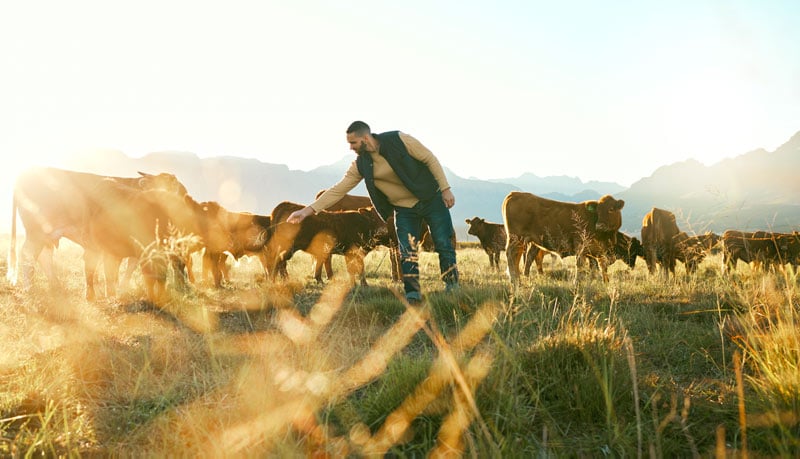
Reducing your consumption of meat and fish is another way to save water. Intensive animal farming methods have a major impact on the environment and the production of meat and fish consumes considerable amounts of water, contributes to greenhouse gas emissions and can cause deforestation.
Here are some direct strategies and actions for reducing your consumption of meat and fish:
- Vary your diet: choose a varied diet which includes fruit, vegetables, and plant-based proteins. Gradually reduce your consumption of meat and fish, preferring alternatives such as vegetables, tofu, and seitan. These foods are high in protein and essential nutrients.
- Sustainable farming: when you want to eat meat, look for products that come from sustainable farming. Look for labels which indicate farming methods that are environmentally friendly, such as free-range or organic farming.
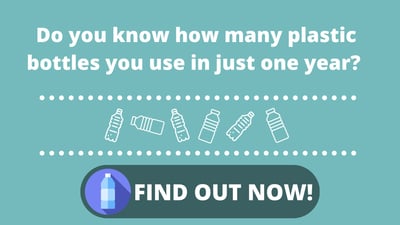
- Sustainable fishing: some species of fish are currently at risk of overfishing, whilst others are more abundant. If you like fish, choose fish which comes from certified sources which respect marine ecosystems.
- Plant-based alternatives: explore vegetable alternatives to meat and fish. Plant-based burgers, vegan sausages, and sushi made from algae are just some of the many options available. These dishes can be just as tasty and nutritious.
- Reduce waste: use every bit of the food you buy. For example, you can make a vegetable stock from leftover vegetables or use fruit peel to flavour water. Reducing waste also means reducing the pressure on the environment. Above all, remember that having a vacuum sealer in your kitchen helps to better preserve food, extending its lifespan and therefore reducing waste.
3 - Sustainable alternatives for travel
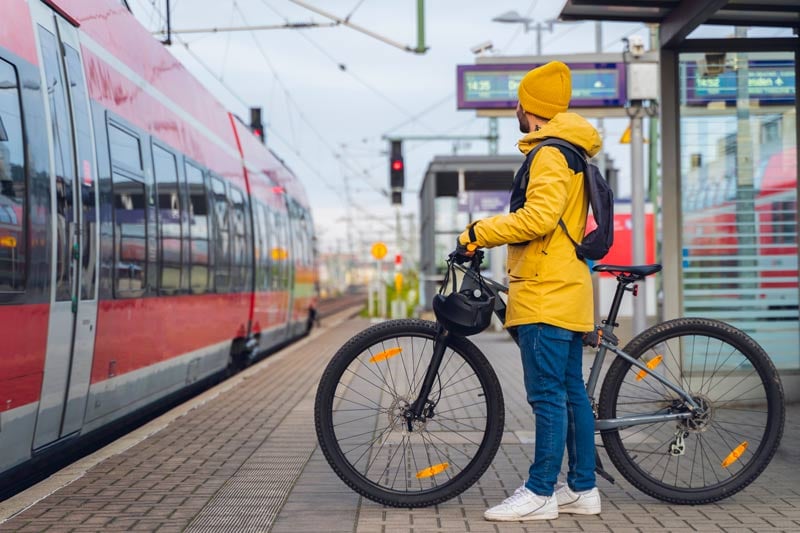 There are many actions in our daily life which have an indirect (but still significant) impact on water resources. These include the choices we make about travel. Here are some tips:
There are many actions in our daily life which have an indirect (but still significant) impact on water resources. These include the choices we make about travel. Here are some tips:
- Use the car less: excessive use of cars contributes to atmospheric pollution and the consumption of fossil fuels. Refining and purifying petrol is a process which consumes many litres of water. For all journeys, choose public transport where possible. It is a more sustainable choice which helps to protect the environment. If you are making a longer journey and cannot avoid using your car, then car sharing or car pooling with friends and colleagues may be a smart and positive option. Reducing the use of the car not only helps the environment, it is also better for your health. If you are thinking about buying a new car, consider an electric vehicle: these cars produce zero emissions when being driven and can be powered by renewable sources such as solar panels.
- Rediscover cycling: there is the right bicycle for you, whatever your requirements. Do you need something small which you can fold up and take with you on the train? It exists! Do you need to transport your children, your pets, or heavy packages? There is the cargo bike! Rediscover the joys of a bike ride, especially now that spring is on its way!
- Take a walk: of course public transport, cars, or even bicycles are often handy and convenient, but do you really need to hurry when making a journey? Absolutely not! If your destination is not too far away, take the time to slow down and enjoy the tranquillity, exploring streets and areas that you have never seen before. Getting around on foot, like cycling, also helps to keep you fit. You will still get to your destination, but more relaxed.
4 - Save electricity
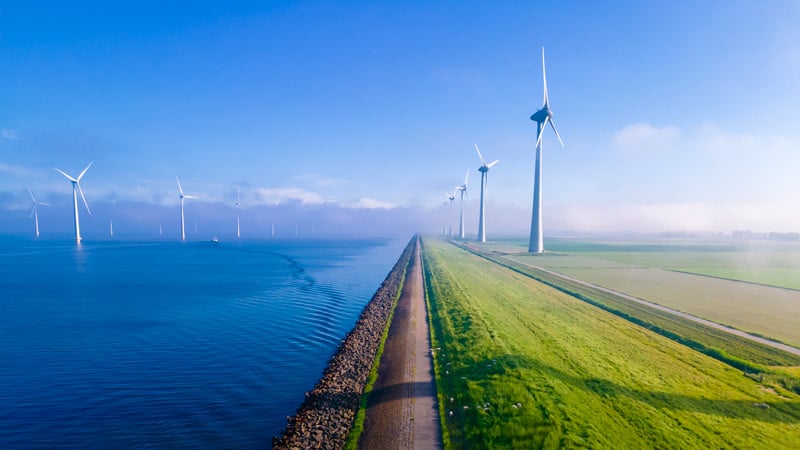 As we have said, water is a precious resource which is crucial for life (our lives and for all ecosystems) but unfortunately it is also threatened by energy waste in our homes. To reduce your electricity bills, only buy household appliances rated category A (or higher) as these consume less power. Unplug appliances when they are not in use, preventing ‘phantom’ consumption in stand-by mode.
As we have said, water is a precious resource which is crucial for life (our lives and for all ecosystems) but unfortunately it is also threatened by energy waste in our homes. To reduce your electricity bills, only buy household appliances rated category A (or higher) as these consume less power. Unplug appliances when they are not in use, preventing ‘phantom’ consumption in stand-by mode.
Another immediate action which is so simple and which saves electricity is to switch off lights every time you leave a room, along with fitting LED or energy efficient bulbs which use much less electricity. In addition, in this case there are even more impactful actions which are positive for the planet, such as fitting solar panels to generate 100% renewable electricity and storing any excess power in accumulators and batteries.
5 - Recycle
Separating your waste for recycling is an environmentally and socially responsible action which plays a crucial part in preserving resources, particularly water.
One of the main benefits of recycling is a reduction in pollution: by separating waste into separate materials such as paper, plastic, glass and food, we can reduce the quantity of waste which ends up in landfill or is incinerated.
Recycling and reusing materials means that fewer raw materials are consumed and reduces the need to produce things from virgin materials, helping to save energy and conserve the water resources used in industrial processes. Separating your waste also has a positive impact on climate change because it reduces the need to use energy-intensive processes, helping to mitigate the greenhouse effect.
Teaching our children the importance of recycling helps to make them more aware and motivates them to become responsible citizens, a significant step towards preserving water resources and protecting our planet.





It's your turn, leave your comment!
Get the latest from the Laica blog